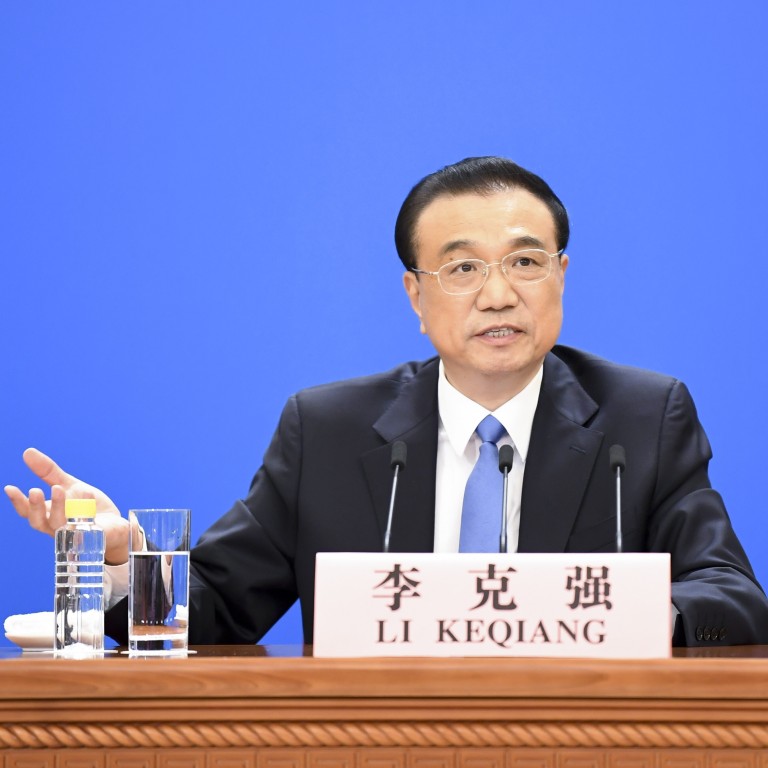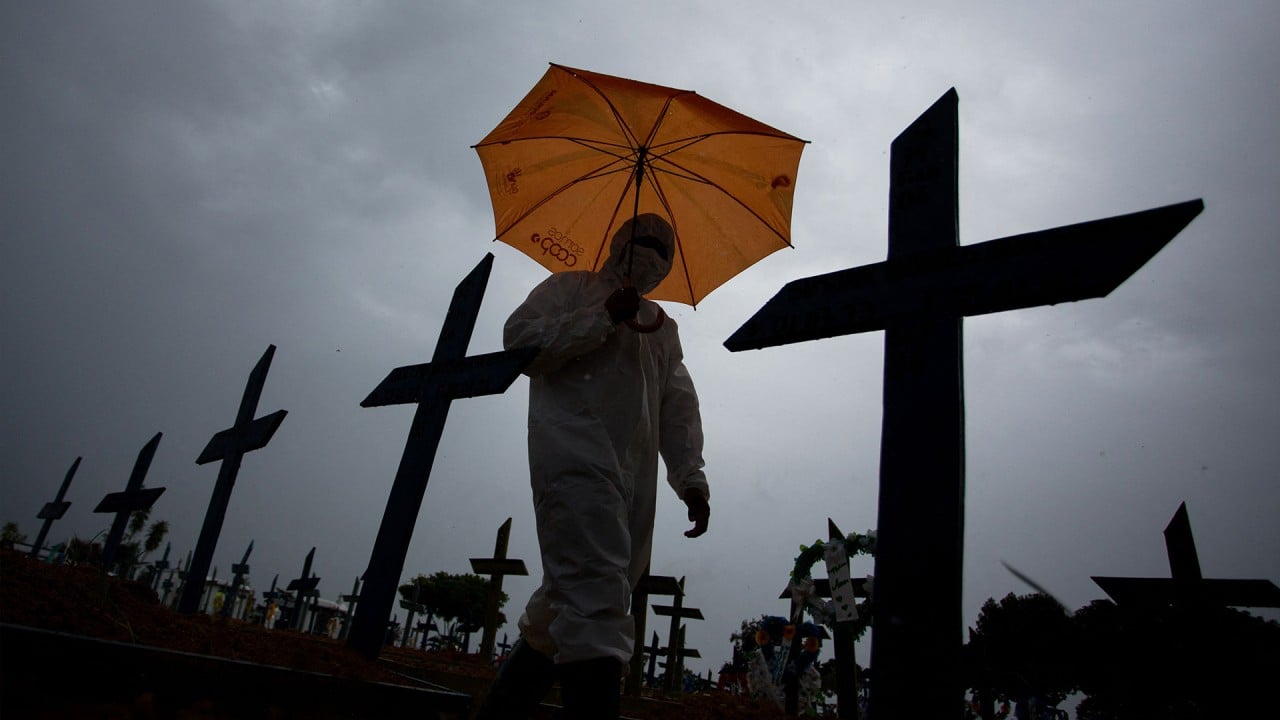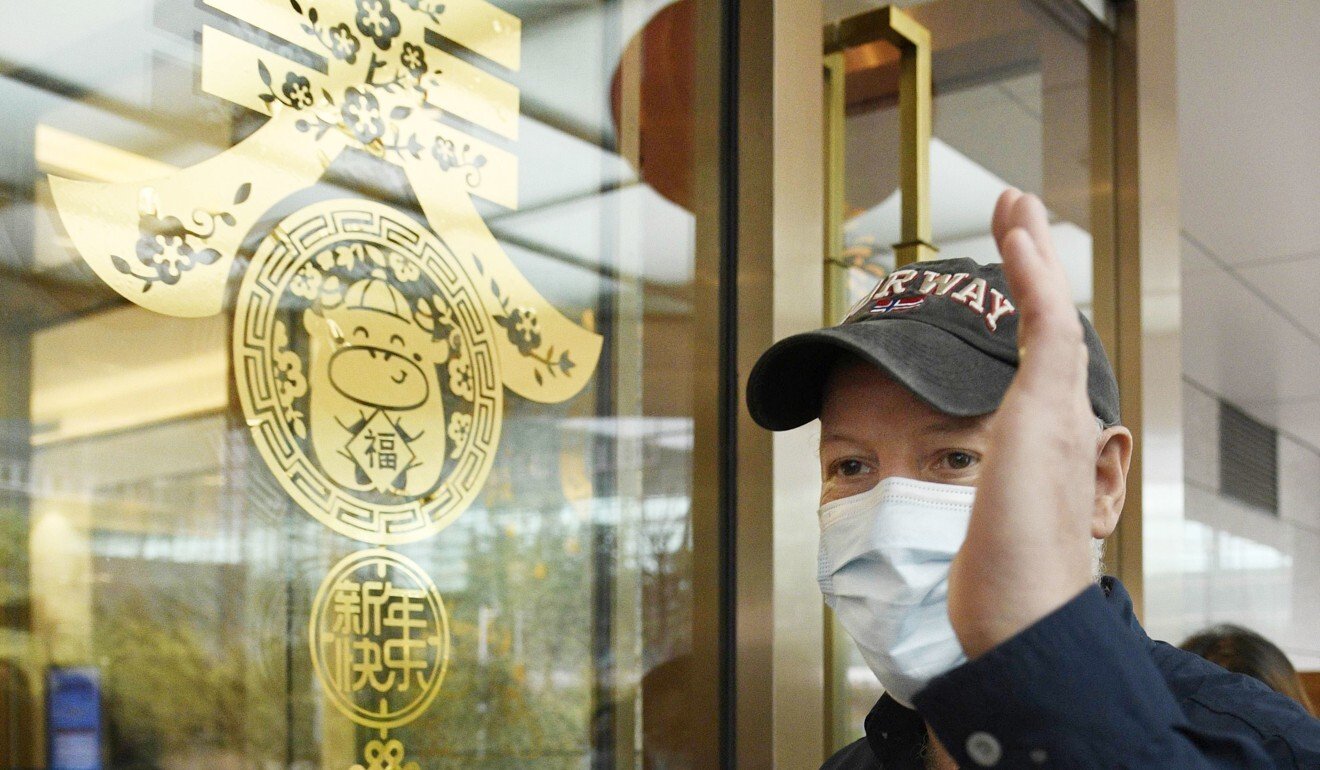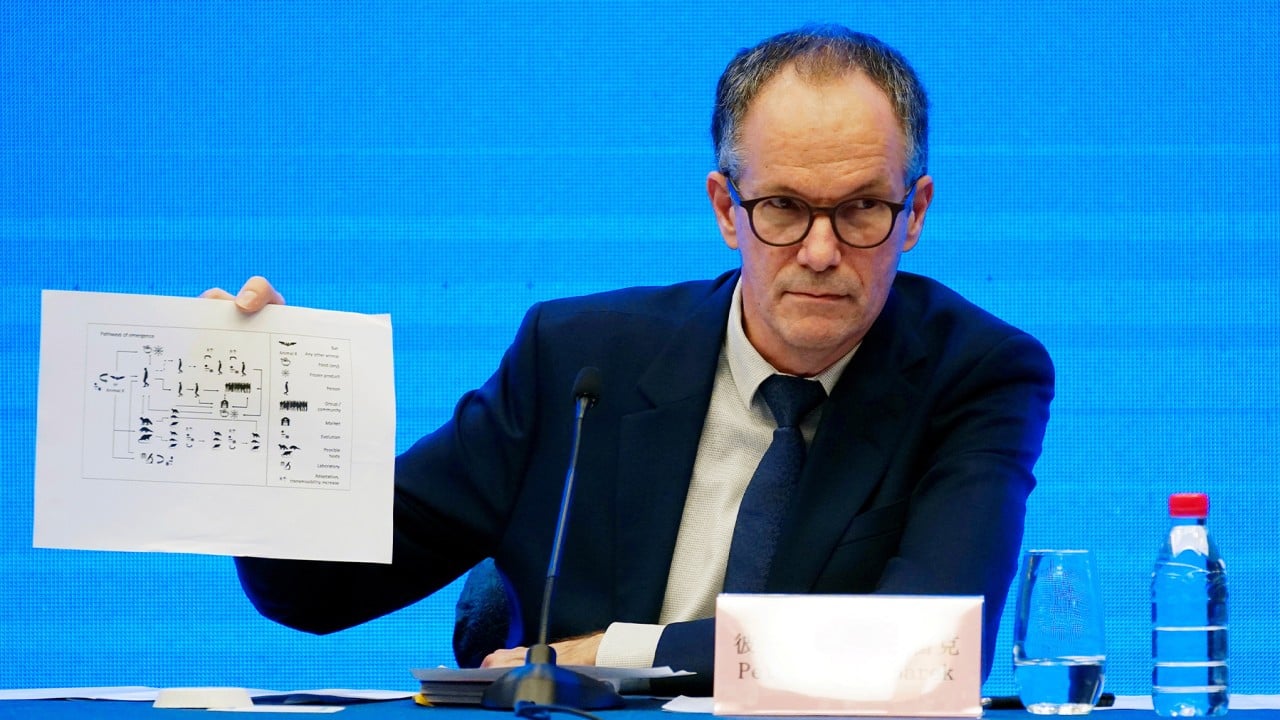
Li Keqiang says China will continue to work with WHO on coronavirus origins
- But premier sidesteps question of whether more early outbreak data will be released to investigators
- It follows remarks from WHO team member that science has been ‘absolutely crushed’ by politics and anti-China sentiment
There has been scrutiny over whether the team investigating the pandemic’s origins had sufficient access to data during their time in China. The US and Britain have called on China to release its outbreak data, after some of the international researchers who travelled to Wuhan said they did not see all the data they would have liked to during the visit.
Li said China had taken an “open, transparent and cooperative approach” and provided the WHO mission with support.
“We will continue to work with the WHO in taking work on this front forward,” he said.

06:05
One year into Covid-19 pandemic, world marks anniversary of WHO’s declaration on coronavirus
Beijing has previously expressed support for the WHO’s research into the origins of the virus, but said it also needs to take place in other countries, suggesting without evidence that the virus may have originated elsewhere.
Nicholas Thomas, a professor of global health security at City University of Hong Kong, said China was “unlikely” to share substantive new data, but Li’s comments were in line with Beijing’s aims to be a player in global public health.
“China will continue to engage with the WHO as part of its commitment to shape a post-Covid-19 global health order,” said Thomas, noting that the completion of the mission also “allowed China to draw a line in the sand and to begin to move on from the virus’ origins debate”.
Hunt for Covid-19 origins: questions surface over China’s testing of suspect animals
Li did not mention any further research missions to China, though the WHO team is expected to recommend more studies be undertaken in the country in its upcoming report.
The origins of the new coronavirus have become a heavily politicised issue. The former Donald Trump administration last year suggested it could have been the result of a laboratory leak, without providing evidence, sparking a tit-for-tat where Chinese diplomats accused the US Army of bringing the virus to Wuhan during military games.
Research into the origins of the virus has also been in the political glare, with one WHO team member saying on Wednesday that science had been “absolutely crushed” by politics and anti-China sentiment in the US.

“We’ve not had access to work in China on the origins for the last 12 months, which is ironic because we could have been on the ground there working with our Chinese colleagues,” he said at a discussion hosted by the Chatham House policy institute in London.
“By now we may have had some really important answers as to how it emerged.”
However, some have questioned whether politics is to blame for delaying the mission, which wrapped up a month ago but was proposed during a meeting of the WHO’s governing body last May.
“Most states, also those that are more open than China, would hesitate about allowing outsiders in, so I imagine China would have sought to delay it irrespective of the rhetoric,” said Ayelet Berman, lead in global health and governance at the National University of Singapore’s Centre for International Law.

01:56
WHO ends Covid-19 mission in Wuhan, says lab leak ‘extremely unlikely’
WHO team member and Dutch virologist Marion Koopmans also referred to the “sensitivities” many countries would have if an external team of scientists came in following an outbreak.
“I think if we want to move beyond this sensitivity let’s just make it routine – standard. That, to me, would be a good step,” she said, speaking alongside Daszak.
Beijing has been dogged by criticism for its lack of transparency throughout the outbreak, including over a crackdown on whistle-blowers and a three-week delay between when the mysterious disease was first announced and when Chinese authorities confirmed that it was spreading between people.
Little information about China’s subsequent research into the virus’ origins has been made public.
Koopmans on Wednesday said she was “pleasantly surprised” by the amount of research data that China presented to the team during the mission, and that there was open discussion about work done in the laboratory.
“Of course you want to move fast to the next steps, but I think given the circumstances this was a lot of information and new information,” she said.
But she said disease control measures that kept the team in hotel quarantine, working online, for half their mission and that stopped them from dining with Chinese colleagues afterward, were “disappointing”.
“The social elements are part of what makes these things evolve … we were handicapped because that was not possible,” she said.
Another team member, British epidemiologist John Watson, agreed they had learned a lot, and said they would be “asking for an opportunity to take that further”.

